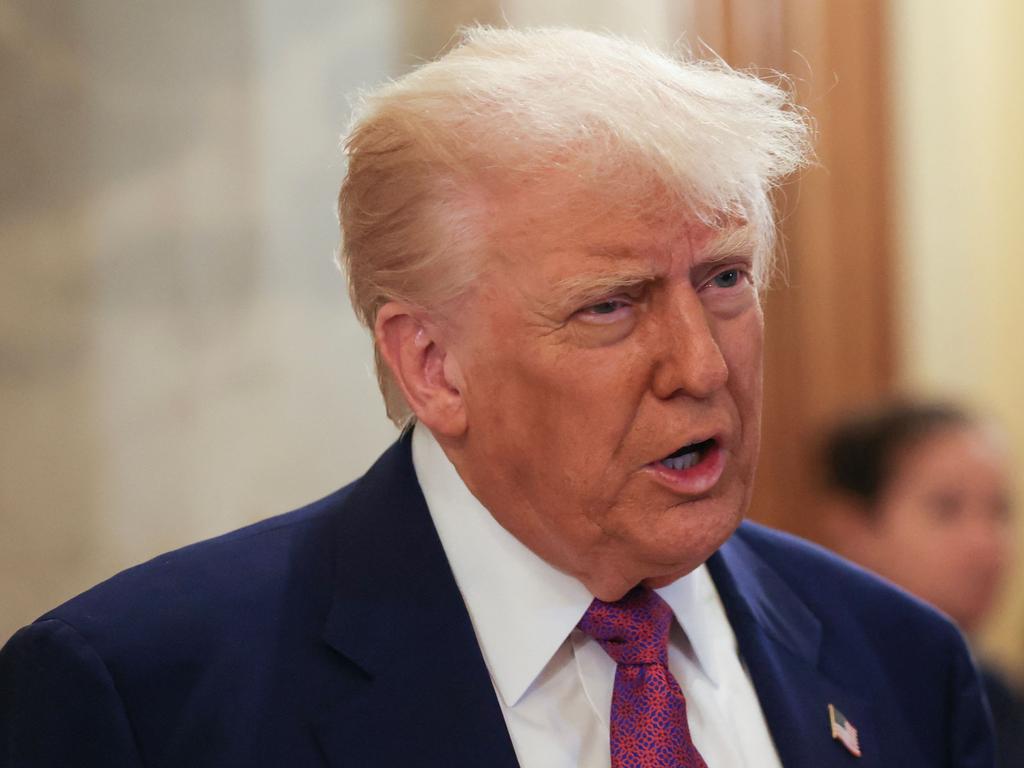Elon Musk joins GOP critics of Trump’s ‘big, beautiful’ bill
The billionaire thanks Donald Trump for the opportunity to ‘reduce wasteful spending’ but says the President’s ‘big beautiful’ bill undercuts DOGE effort to slash government costs.

Influential billionaire Elon Musk has confirmed he is leaving his position within the US government after leading the so-called Department of Government Efficiency in a controversial effort to slash federal spending.
“As my scheduled time as a Special Government Employee comes to an end, I would like to thank President Donald Trump for the opportunity to reduce wasteful spending,” Musk wrote on his social media platform
He made the announcement hours after the infamous cost-cutter gave new fuel to GOP critics of the Republicans’ multi-trillion-dollar tax and spending agenda, saying that the current measure fails to reduce the federal deficit, echoing complaints from hard-line factions in both the House and the Senate.
The bill narrowly passed the House last week with almost all Republicans on board and now heads to the Senate, where some fiscal hawks, including Senators Ron Johnson of Wisconsin and Rick Scott of Florida, have demanded deeper cuts. The Senate is expected to make changes to the bill and then send it back to the House. President Trump wants the measure, which he has championed as “one, big, beautiful bill,” on his desk by July 4.
“I was disappointed to see the massive spending bill, frankly, which increases the budget deficit,” Musk said in excerpts released Tuesday night from an interview with “CBS Sunday Morning.” He said the bill undermined cost-cutting undertaken by his DOGE efficiency push.
“A bill can be big or it can be beautiful,” Musk said. “But I don’t know if it can be both.”
The White House didn’t immediately respond to a request for comment about Musk’s remarks. Trump has signalled he is open to changes to the bill in the Senate, telling reporters recently that “some will be minor, some will be fairly significant.”
Republicans are using a process called budget reconciliation that bypasses the usual 60-vote threshold in the Senate and empowers the GOP to pass the measure without needing Democratic votes. The House bill passed last week extends expiring tax cuts, adds versions of the president’s pledges to remove taxes on tips, overtime pay and Social Security benefits, and provides new money for border security and the military. It cuts spending on Medicaid, food aid and higher education.
In all, the House bill is expected to increase budget deficits by $2.7 trillion through 2034, compared with doing nothing, though a final official estimate wasn’t available.
“Hopefully, the Senate will succeed with the Big Beautiful Bill where the House missed the moment,” said Rep. Warren Davidson (Republican, Ohio) on X, in response to Musk’s comments. “Don’t hope someone else will cut deficits someday,” Davidson said.
Davidson and Rep. Thomas Massie (Republican, Kentucky.) were the only two Republicans to vote against the House bill.
Backers of the bill argue that deficits won’t rise, counting on new revenue from economic growth to cover the costs. But the Senate has a small group of spending hardliners who have threatened to block the bill if it doesn’t make further spending reductions.
“It doesn’t balance the budget. It doesn’t come close to balancing the budget,” Scott said on the Charlie Kirk Show. He said he would “absolutely vote no” on the current proposal.
“If they brought it to the floor right now there’s not a chance it would get the 51 votes it needs” in the Senate, he said.
White House adviser Stephen Miller defended the package on X as the “single largest welfare reform in American history” and said it would reduce the deficit. He said legislation formalising the DOGE cuts would have to be done in subsequent legislation, due to rules excluding changes to discretionary spending in the current budget-reconciliation package.
DOGE cuts are to discretionary spending. (Eg the federal bureaucracy). Under senate budget rules, you cannot cut discretionary spending (only mandatory) in a reconciliation bill.
— Stephen Miller (@StephenM) May 28, 2025
So DOGE cuts would have to be done through what is known as a rescissions package or an…
Musk’s words carry weight within the party, even as he has stepped back from his role as the public face of Trump’s push to slim down the federal workforce. Last year, before Trump took office, Musk helped derail a major Republican spending package, sending a barrage of social-media messages that criticised the plan formulated by Republican leaders as bloated. The GOP then passed a narrower version of the bill, which was needed to keep the government funded.
Musk is the chief executive of electric-car pioneer Tesla. Under the House bill, consumer tax credits for new electric vehicles would largely end after this year. Musk has previously said the government should end all such tax credits.
Wall Street Journal





To join the conversation, please log in. Don't have an account? Register
Join the conversation, you are commenting as Logout